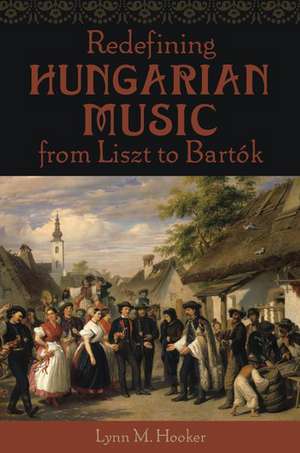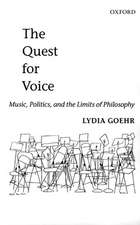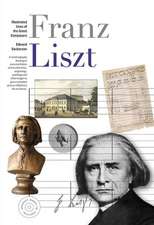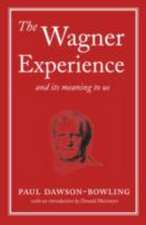Redefining Hungarian Music from Liszt to Bartók
Autor Lynn M. Hookeren Limba Engleză Hardback – 12 dec 2013
Preț: 463.94 lei
Preț vechi: 639.23 lei
-27% Nou
Puncte Express: 696
Preț estimativ în valută:
88.79€ • 96.41$ • 74.58£
88.79€ • 96.41$ • 74.58£
Carte tipărită la comandă
Livrare economică 11-17 aprilie
Preluare comenzi: 021 569.72.76
Specificații
ISBN-13: 9780199739592
ISBN-10: 0199739595
Pagini: 320
Ilustrații: 6 halftones, 36 music examples, 8 tables
Dimensiuni: 236 x 160 x 33 mm
Greutate: 0.62 kg
Editura: Oxford University Press
Colecția OUP USA
Locul publicării:New York, United States
ISBN-10: 0199739595
Pagini: 320
Ilustrații: 6 halftones, 36 music examples, 8 tables
Dimensiuni: 236 x 160 x 33 mm
Greutate: 0.62 kg
Editura: Oxford University Press
Colecția OUP USA
Locul publicării:New York, United States
Recenzii
Succeeds brilliantly in illuminating some vexing matters in a critical period of Hungarian musical history.
Hooker's control of scholarly and primary sources is exemplary, as is her critical analysis ... In Lynn Hooker's able hands we see how the musicological discourse on the nature of national style both clarifies an important period of Hungarian music history and affected its course.
Hooker's control of scholarly and primary sources is exemplary, as is her critical analysis ... In Lynn Hooker's able hands we see how the musicological discourse on the nature of national style both clarifies an important period of Hungarian music history and affected its course.
Notă biografică
Lynn M. Hooker serves as Associate Professor of Hungarian Studies at Indiana University, where she is also affiliated faculty in Musicology and Ethnomusicology. She received her PhD in the History and Theory of Music from the University of Chicago. She lives in Bloomington with her husband and two children.








![Gustav Mahler [With CD (Audio)]: (Selections)](https://i0.books-express.ro/bt/9781780384450/gustav-mahler-with-cd-audio.jpg)

